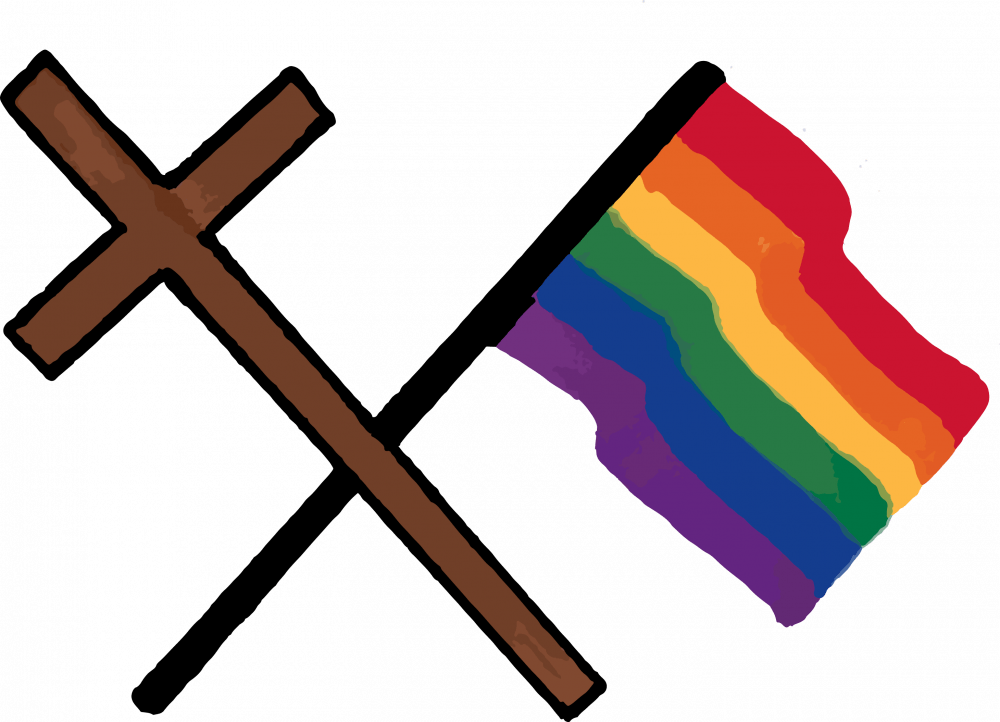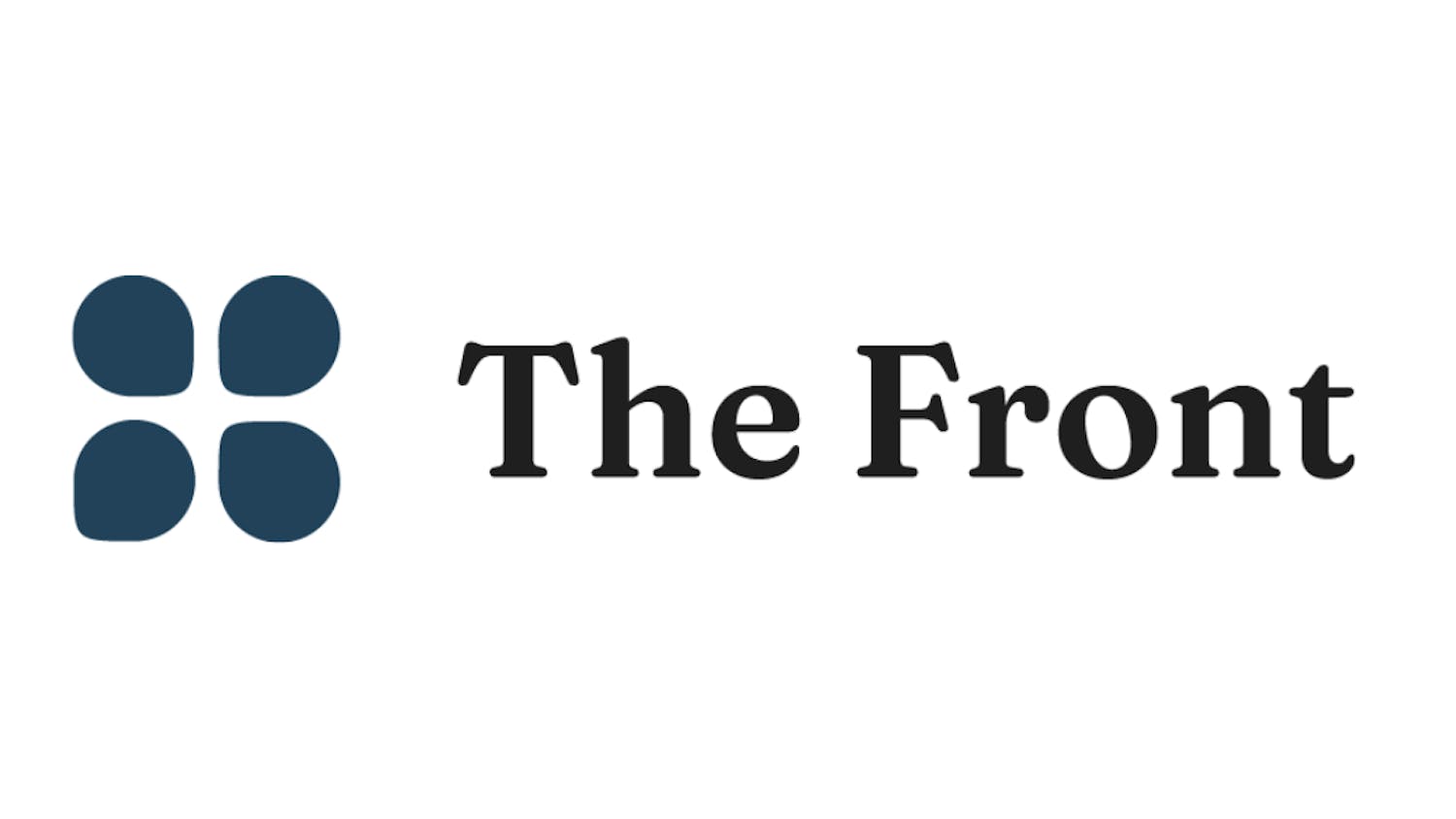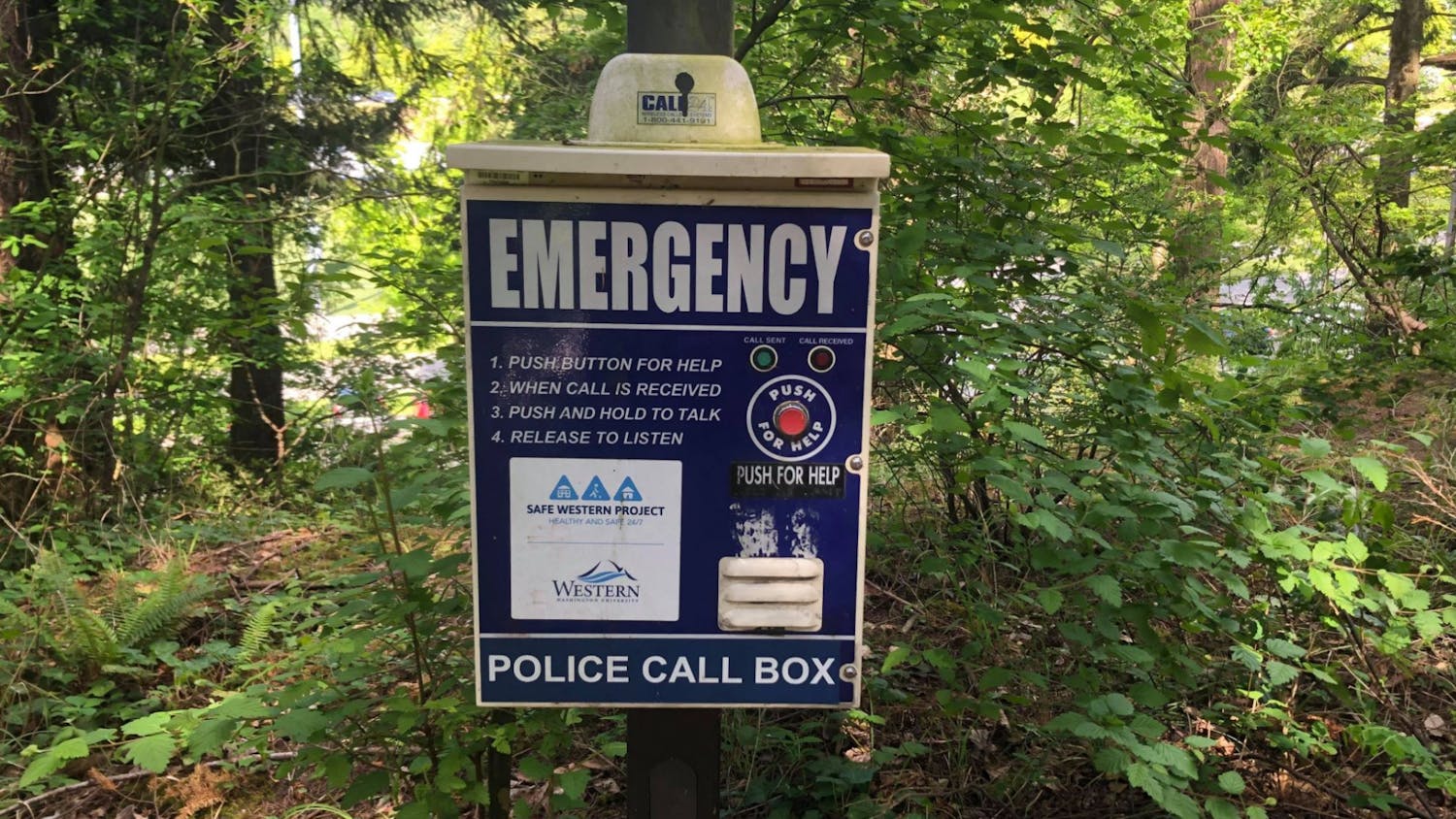
This is the last in a four-part investigative series about the forced resignation of an LGBTQ+ student and the role of religious institutions on Western’s campus. Parts one, two, three can be found here.
A few hours after she was forced to resign from her position at the WWU Newman Center because of her relationship with another woman, Leah Adams tried going to Sunday evening Mass. She only made it through five minutes before she started crying and had to leave. She said she felt ostracized from the community and that trying to return induced panic attacks. She hasn’t been back since.
In texts sent to a friend five days after the resignation, Adams said she was overwhelmed and unsure of what to do. For several weeks after, she was without a job and running low on money.
Adams said an important part of the recovery process was the WWU Queer Christian Club, which gave her an opportunity to meet other students with similar experiences.
McKenzie Goff, the club’s co-lead, said the club provides a safe space for students who might feel ostracized from religious communities because of their sexual orientation.
“It was a way for people to feel comfortable in a religious setting and don’t have to choose between, ‘OK do I present myself as religious or do I present myself as queer?’ And that was a big frustration for a lot of people, because they didn’t feel like they could present both sides of themselves,” Goff said.
Goff said that many of the clubs members come from similar backgrounds, and have struggled to bridge the divide between their sexual orientation and religious identity.
Leo Egashira, a spokesperson for LGBTQ+ Catholic group Dignity/Seattle, said that at the local level, he has observed a large amount of support and acceptance from the Catholic community. Many of the problems, he said, stem from the larger church hierarchies, which have been slow to change.
“Unfortunately, despite a lot of good things that underlie Catholic teachings, especially social justice teachings, there’s a lot of baggage that accompanies the church, and it’s been slow to shed that baggage,” he said.
The Catholic Church’s official catechism refers to homosexual acts as “intrinsically disordered” and instructs that people with homosexual urges remain celibate. The catechism says that the church should accept “homosexual persons” with respect, compassion and sensitivity, while also calling upon them to remain celebate.
Egashira has been involved in Dignity/Seattle since the 1980s. He said the organization helps LGBTQ+ Catholics find a community, and can serve as a stepping stone for those looking to reconcile their faith and sexual orientation.
Unlike many other branches of Christianity, the Catholic Church is highly centralized, making it slower to adapt to progressive societal changes. Egashira said this can make it especially difficult for some LGBTQ+ Catholics to come to terms with their faith.
“They see society changing around them in major ways, but absolutely no movement in the Catholic Church, it makes it very difficult to reconcile that,” he said. “It makes you question, ‘Why am I even involved in this?’”
Catholic support for LGBTQ+ equality has risen steadily over the past two decades. A 2019 study by the Pew Research Center found that 61% of American Catholics now support same-sex marriage. Egashira said he is hopeful this trend will continue, and lead to wider change within the church.
At the institution level, there have been preliminary signs of progress. In 2018, The Vatican released a document containing what is believed to be their first ever use of the term “L.G.B.T.” Following backlash over the Kennedy Catholic resignations in Seattle, Archbishop Paul Eitinne created a special task force to look into how universal church teachings can be applied locally, and publicly acknowledged that the church is now serving a much broader community than in the past.
Egashira, who is 66, has identified jointly as gay and a Catholic for most of his life. In the mid ’70s early ’80s, he was involved in Newman Centers and other religious campus organizations at Harvard and Berkeley. He said he has learned to not let the church’s stance on LGBTQ+ issues bother him, and continues to embrace his Catholic faith.
“My formation of faith, as a lifelong Catholic has matured. And my feeling is that if I give the Catholic Church the right to declare who is Catholic and who is not, I am ceding them my power. And I refuse to do that,” he said.
Patrick Kissinger was one of several Newman Members who were upset by Adams’ resignation. Despite his frustration, Kissinger said he doesn’t regret his time at the Newman Center.
“It’s still a place that can do a lot of good for good people,” he said.
Kissinger said that people’s interpretation of religious doctrine can be complicated, especially when applied at an institutional level. He doesn’t think Adams' resignation should necessarily serve as an indictment against the Newman Center or the Catholic Church as a whole.
“It’s just intolerance in general, and that can lurk in so many different circles,” he said.
The Line-Up:
Monday: WWU Newman Center forced resignation of student employee after learning of same-sex partner
Wednesday: For LGBTQ+ employees at religious organizations, a murky legal landscape on campus and in the courts
Thursday: In wake of resignation, a journey of faith and acceptance

Nate Sanford is the editor-in-chief of The Western Front and a fourth-year news/editorial journalism major. His reporting focuses on the environment, local politics, urban policy and anything else that matters. His writing has appeared in Crosscut, the Inlander, Whatcom Watch and at least one desk in Haggard Hall. You can find him on Twitter @sanford_nate and at natesanford.westernfront@gmail.com.





